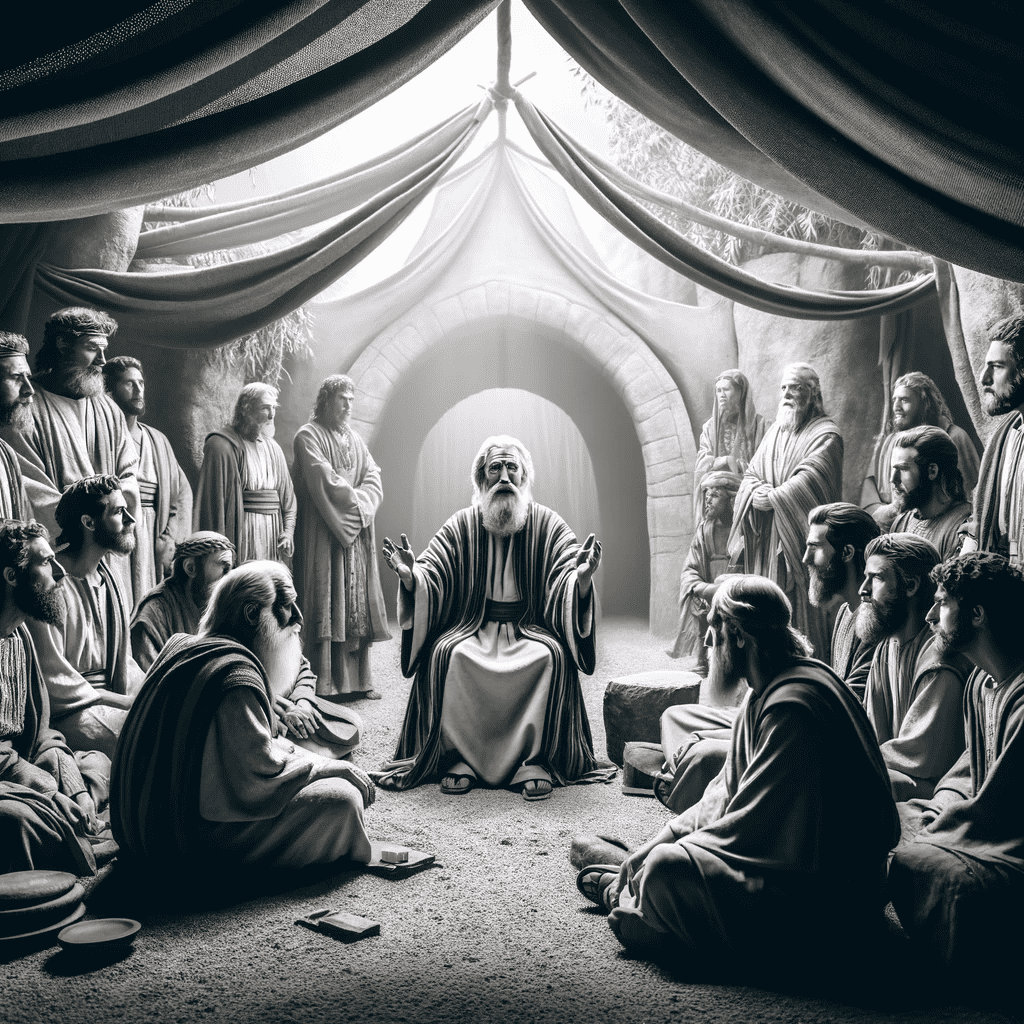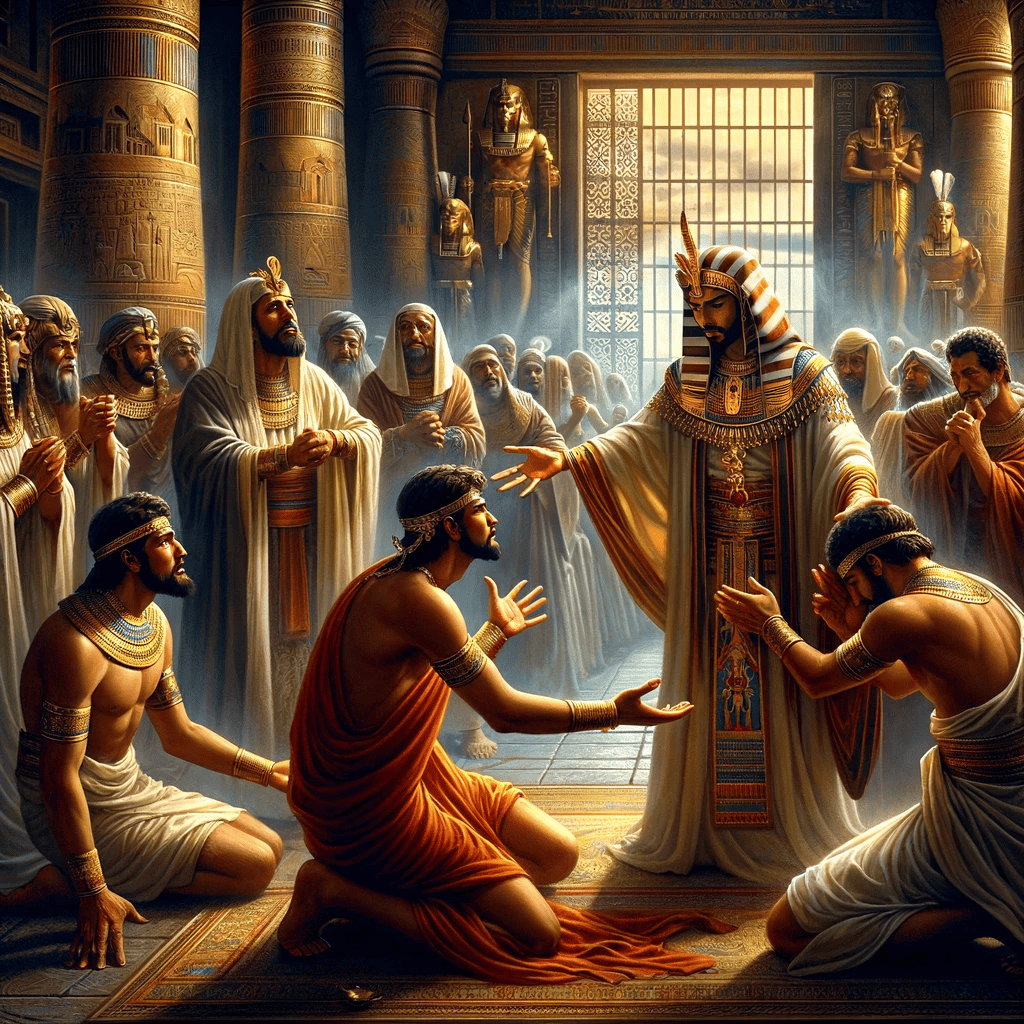
The Book of Exodus, the second book of the Bible, is a foundational text that recounts the epic story of the Israelites’ deliverance from slavery in Egypt, their journey through the wilderness, and the establishment of their covenant with God at Mount Sinai. Within its chapters, Exodus unfolds a series of dramatic, inspirational, and deeply spiritual narratives that have shaped the beliefs and practices of countless generations. The 23 Bible stories selected from this book capture the essence of faith, resilience, and the quest for freedom and identity under divine guidance.
These stories range from the miraculous birth and rise of Moses, the reluctant leader chosen by God to liberate his people, to the awe-inspiring events leading to the Exodus itself, including the ten plagues and the parting of the Red Sea. They encompass the trials and tribulations faced by the Israelites in the desert, their encounters with God, and the revelation of the Law, including the Ten Commandments, which continue to be moral and ethical cornerstones in the Judeo-Christian tradition.
Through these narratives, the Book of Exodus explores themes of faith, obedience, justice, and redemption, offering profound insights into the nature of God and the relationship between the divine and humanity. The stories serve not only as historical accounts but also as spiritual lessons that address the universal human condition, the struggle for freedom, and the longing for a covenantal relationship with the divine.
This introduction to 23 Bible stories from the Book of Exodus invites readers to embark on a journey through one of the most powerful and influential texts in human history. It promises a deeper understanding of the spiritual heritage shared by Jews and Christians alike and offers timeless lessons on leadership, faith, and the power of divine intervention in shaping human destiny.
- The Birth of Moses (Exodus 1-2): The story of Moses’ early life, his birth during a time when Pharaoh orders all newborn Hebrew boys to be killed, his rescue by Pharaoh’s daughter, and his upbringing in the Egyptian court.
- The Burning Bush (Exodus 3): Moses encounters God in the form of a burning bush on Mount Horeb (Sinai), where he is called to lead the Israelites out of Egypt.
- The Ten Plagues (Exodus 7-12): God sends ten plagues upon Egypt when Pharaoh refuses to release the Israelites from bondage, culminating in the death of the firstborn of Egypt.
- The Passover (Exodus 12): The institution of the Passover as a perpetual observance to commemorate the Israelites’ deliverance from Egypt, specifically the passing over of the houses of the Israelites by the angel of death during the tenth plague.
- The Exodus from Egypt (Exodus 12-15): The departure of the Israelites from Egypt, including the parting of the Red Sea, allowing them to escape Pharaoh’s army.
- The Manna and Quail (Exodus 16): God provides manna and quail for the Israelites to eat in the desert.
- The Water from the Rock (Exodus 17): Moses strikes a rock at Horeb, and water flows out for the people to drink.
- The Battle with Amalek (Exodus 17): The Israelites fight and defeat the Amalekites with Joshua as the commander and Moses holding up his hands for victory.
- The Covenant at Mount Sinai (Exodus 19-24): The Israelites arrive at Mount Sinai, where they enter into a covenant with God, receiving the Ten Commandments and other laws.
- The Golden Calf (Exodus 32): While Moses is on Mount Sinai, the people create a golden calf to worship, leading to Moses breaking the tablets of the law in anger.
- The Construction of the Tabernacle (Exodus 25-31, 35-40): Detailed instructions are given for the construction of the Tabernacle, a portable dwelling place for God among the Israelites, and its actual construction and dedication.
- he Appointment of Bezalel and Oholiab (Exodus 31, 35-36): God appoints Bezalel and Oholiab with wisdom, understanding, and knowledge in all manner of workmanship to construct the Tabernacle and its furnishings, illustrating the importance of skill and craftsmanship in worship.
- The Sabbath Law (Exodus 31, 35): Alongside the construction of the Tabernacle, the importance of the Sabbath as a day of rest is reiterated, highlighting its role as a sign of the covenant between God and the Israelites.
- Moses’ Radiant Face (Exodus 34): After Moses returns from his second 40-day stay on Mount Sinai with the new set of tablets, his face shines from speaking with God, symbolizing his close relationship with the divine and the sanctity of the law.
- The Renewal of the Covenant (Exodus 34): Following the incident of the Golden Calf, God renews the covenant with Israel, providing Moses with a new set of stone tablets and reiterating the laws and commandments that the Israelites are to follow.
- The Cloud and the Glory of the Lord (Exodus 40): Upon the completion of the Tabernacle, the cloud covers the tent of meeting, and the glory of the Lord fills the Tabernacle, signifying God’s presence among His people and His approval of their work.
- The Setting Up of the Tabernacle (Exodus 40): The Tabernacle is erected and anointed on the first day of the first month in the second year after the Exodus, marking a pivotal moment in the Israelites’ journey as they establish a formal place of worship.
- Liberation from Egypt: The story of the Israelites’ exodus from Egypt is a central narrative that showcases God’s power, faithfulness, and the theme of liberation from oppression. This narrative includes the calling of Moses, the ten plagues, the Passover, and the crossing of the Red Sea.
- Covenant and Law: At Mount Sinai, the Israelites receive the law, including the Ten Commandments, which are central to Jewish religious identity and ethics. This event marks the establishment of the covenant between God and the Israelites, defining their obligations to God and to each other.
- Worship and Presence: The instructions for and the construction of the Tabernacle are detailed in Exodus. The Tabernacle serves as a portable sanctuary where God dwells among His people. The rituals and priesthood associated with the Tabernacle set the foundation for Israelite worship.
- Leadership and Guidance: Moses’ leadership is a key focus, from his initial call to his role in leading, interceding for, and instructing the Israelites. His interactions with God provide a model of faithfulness and direct communication with the divine.
- Challenges and Renewal: The journey of the Israelites is not without challenges, including internal rebellion (e.g., the Golden Calf incident) and external threats. These stories highlight the importance of faithfulness to God and the consequences of disobedience, as well as God’s willingness to forgive and renew His covenant with His people.
- Divine Presence and Glory: The manifestation of God’s presence through the cloud and the glory filling the Tabernacle emphasizes God’s immanence and the sanctity of the space where He dwells among His people.




